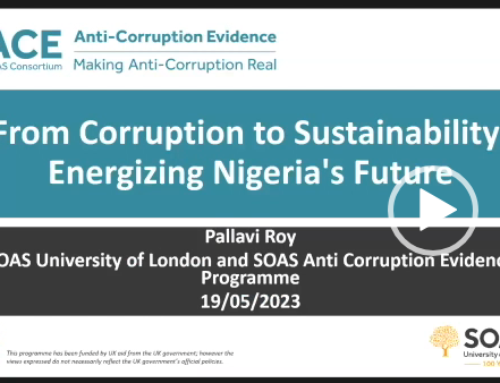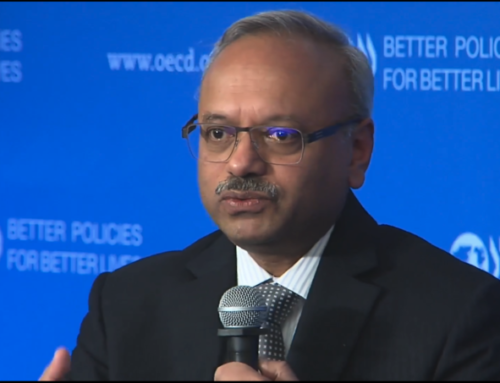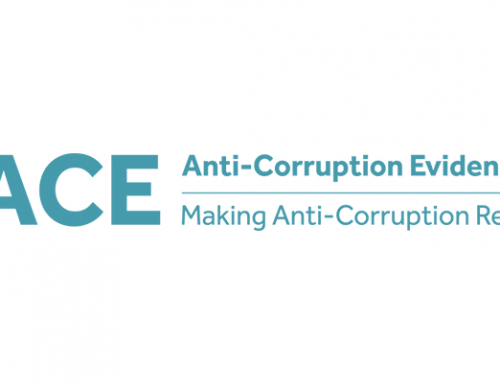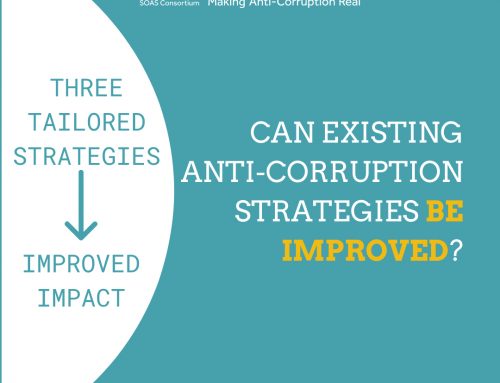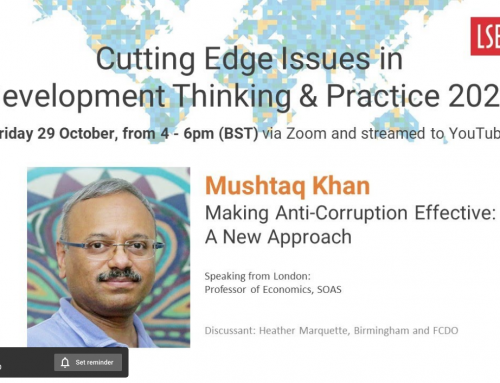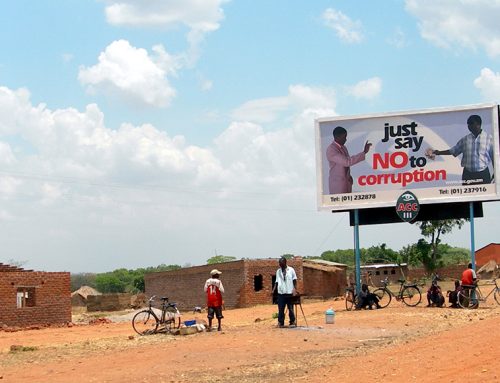The Anti-Corruption Research Evidence Consortium was pleased to hold our first event of the new SOAS ACE seminar series, debating anti-corruption topics.
Dr Elizabeth David-Barrett and Dr Mihaley Fazekas presented the findings of the British Academy/DFID led ACE research project ‘Curbing corruption in Development aid-funded procurement’ during this seminar facilitated by Dr Antonio Andreoni, ACE RPC Research Director at SOAS, University of London.
Following scandals about corruption in foreign aid, and in a political climate that increasingly questions the legitimacy of development assistance, donors are under pressure to control how their funds are spent. At the same time, they also face pressure to trust recipient governments to disburse project funds themselves, so as to build capacity in developing countries.
This event presented the findings of a paper assessing under which conditions donor regulations are successful in controlling corruption in aid spent by national governments through procurement tenders. By mining procurement contracts funded by the World Bank in 100+ countries over the period 1998-2008 for corruption “red flags”, we created a dataset that provides an unprecedentedly accurate picture of corruption risks in the spending of aid across the developing world. Through propensity score matching and regression analysis, we found that the 2003 World Bank regulatory reform aiming to control corruption was effective in reducing corruption risks: lowering single bidding on competitive markets by 3.8-4.3 percentage points. This effect is greater in countries with low state capacity.
Speakers:
Dr Liz David-Barrett is Deputy Director of the University of Sussex Centre for the Study of Corruption and Senior Lecturer in Politics. Her work focuses on the government-business interface, particularly on corruption risks arising from this relationship, including bribery, favouritism in procurement, lobbying and the revolving door. She also researches anti-corruption tools and is particularly interested in how international tools influence national politics.
Dr Mihály Fazekas has been pioneering the use of ‘Big Data’ for social sciences research, especially for measuring and analysing corruption and administrative quality across Europe. He uses mixed research methods while working in interdisciplinary teams of IT specialists, practitioners, and social scientists in order to collect, structure, and clean large administrative datasets generated by governments. One of his primary areas of work is public procurement and high-level corruption.
Hosted by Dr Antonio Andreoni, Senior Lecturer in Economics at SOAS and Research Director of the SOAS Anti-Corruption Evidence Research Consortium.
Read more.


